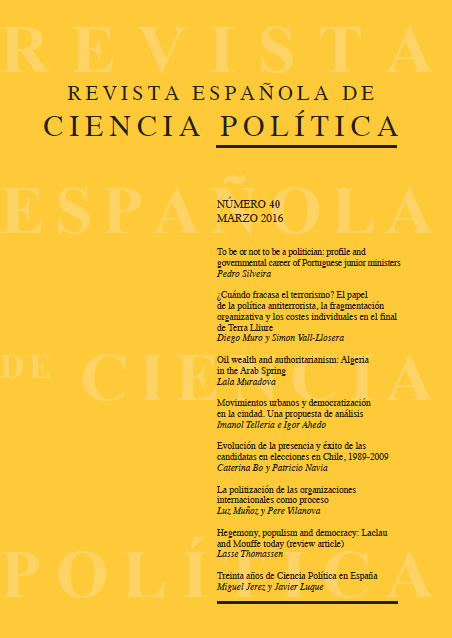Oil wealth and authoritarianism: Algeria in the Arab Spring
Keywords:
oil wealth, authoritarianism, rentier state, democracy, Algeria, Arab Spring, institutions, political economyAbstract
The “oil curse thesis” links a country’s oil largesse inter alia to the durability of its authoritarian regime. And it contends that abundant oil revenues enable autocrats to stymie democratic transition by obviating taxation from citizens, buying off their political acquiescence, bolstering the repressive apparatus and thwarting the formation of civil society. This paper revisits the relevant literature by qualitatively testing its predictions on an in-depth case study of the Algerian regime in the face of the political crisis and riots of 2011. Going beyond the deterministic argument on “oil wealth-authoritarianism”, it carefully examines the strategic interaction between country-specific factors and oil wealth and studies how the confluence of these factors has shaped the survival of the authoritarian regime in Algeria since 2011.
Downloads
Downloads
Published
How to Cite
Issue
Section
License
Copyright (c) 2016 Lala Muradova Huseynova

This work is licensed under a Creative Commons Attribution-NonCommercial-NoDerivatives 4.0 International License.






